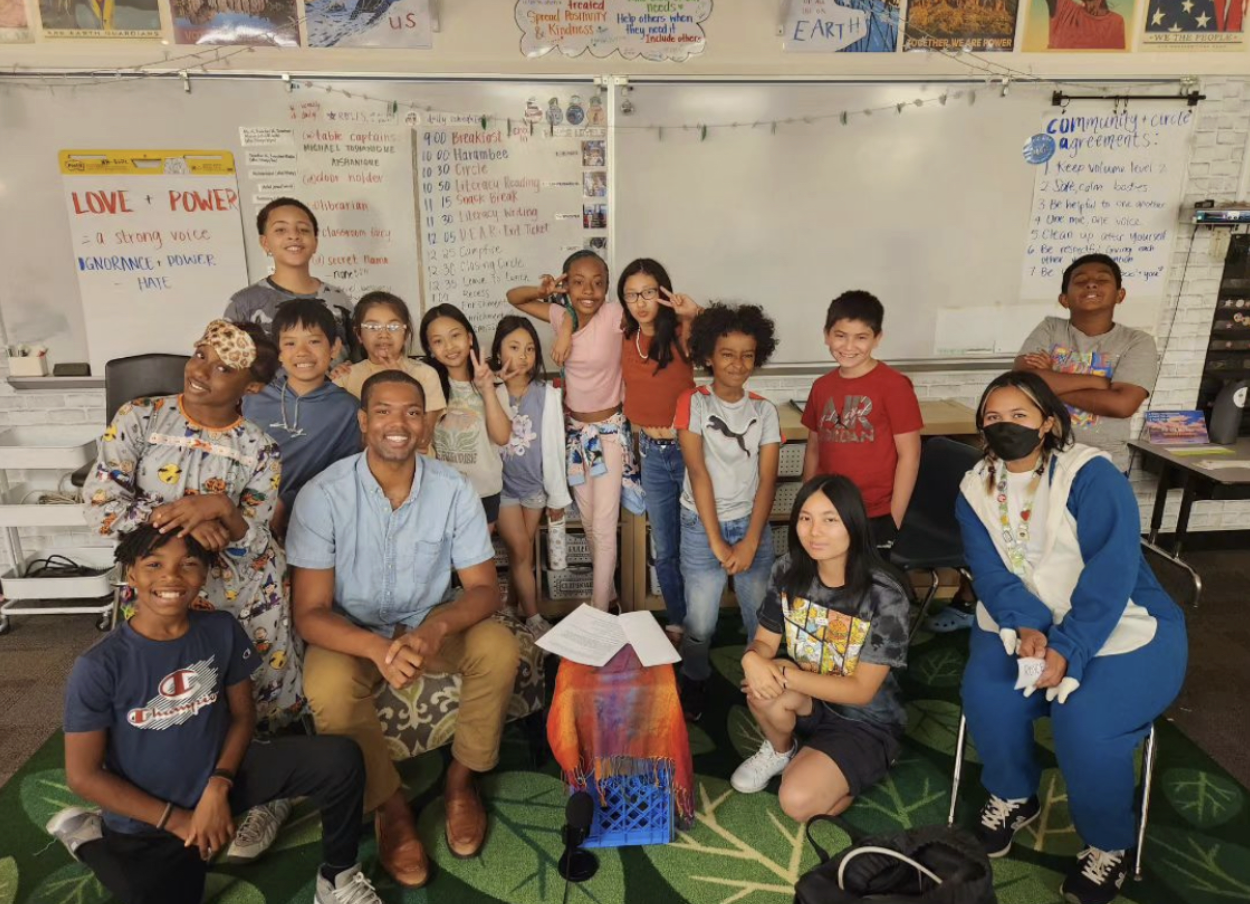FREEDOM SCHOOLS

The Joy and Transformation of Summer Learning
WA-BLOC’s Freedom Schools Program is a five-week critical literacy based summer school program inspired by the original Freedom Schools of 1964 as well as the Children’s Defense Fund’s models for youth learning and social action. Freedom Schools centers joy, culturally reflective curriculum and instruction, social action, and positive identity formation.
WA-BLOC has been facilitating the Freedom Schools summer program for K-12th grade scholars in Southeast Seattle since 2016 (8 consecutive years).
Our programming addresses inequities that exist within traditional school and classroom settings by creating diverse schooling experiences, delivering curriculum that is representative of the community we serve, and providing multiple opportunities for youth, family, and community engagement throughout the summer. Our program objectives are as follows:
Create a safe, anti-racist, restorative, joyful, and engaging learning environment for Black and brown youth.
Provide scholars with opportunities to further develop their academic and social-emotional skills.
Provide scholars with reflection opportunities and language to identify themselves as well as systems and power structures around them.
Validate and make space for multiple ways of knowing, especially those that have been dismissed because they do not “fit” in a traditional classroom.
Provide scholars with opportunities to engage in social action, and support their growth as agents of change.
Core Components
Critical Literacy Curriculum
We believe that curriculum should be linked to students’ experience and cultural history.
Our Freedom Schools curriculum centers rigorous academic learning and social emotional skill-building. The curriculum’s foundation is based on the four main tenets of critical literacy pedagogy (perspective, positioning, power, and social action), and is designed to meet Common Core Standards, Washington’s SEL Standards, and Learning for Justice’s Social Justice Standards.
Through culturally relevant and anti-racist books like The Proudest Blue by Ibthihaj Muhammad and Just Ask! Be Different, Be Brave, Be You by Sonia Sotomayor students explore foundational topics of identity (culture, race, gender, etc.). Through more experiential texts like neighborhood walks or interviews with local leaders students analyze and begin to problem-solve current issues in their communities.
Over the course of five weeks scholars explore five core questions: Who am I? Who are my people? What’s going on in my community? What makes us powerful? What’s our freedom dream?
Intergenerational Leadership Development
We believe that teachers should reflect the diversity of our students. We also believe Black and brown young adults should have supportive, culturally reflective training opportunities to explore careers in youth development and education that don’t require they leave their identities at the door when they walk into a school building.
Every summer, we hire 10-15 high school and college-aged Black and brown young adults and provide them with dynamic training and ongoing mentorship and coaching by certified classroom teachers from our community.
Young adults often express that spending a summer at Freedom Schools “heals them” from their own educational traumas and provides them with a true network of support as they continue to grow.
Social Action
We believe that young people are powerful agents of change.
Each summer, scholars explore how they can make a difference in their community by discussing and learning about issues impacting them and their community. Over the course of five weeks, scholars design a social action project and invite community members to act with them!
Student-led movements over the years have impacted huge change in our city and region. Our youth spearheaded campaigns that tackled everything from transit justice and the construction of a new youth jail, to food equity and more.
The shoulders we stand on
This work is not new, and neither is the fight. For decades brilliant leaders have powered movements by equipping communities with the resources and tools needed to create change. We take our inspiration from one particular set of changemakers: the women behind the original Freedom Schools program of 1964 and its revival in the early 1990s.
You cannot talk about Freedom Schools without highlighting “the mother of the movement”, Septima Clark. Septima wore many hats: at different points in her life she was an educator, a principal, the education director of the Southern Christian Leadership Conference (SCLC), and much more. She believed “[…] unconditionally in the ability of people to respond when they are told the truth,” that “literacy is liberation,” and that “we need to be taught to study rather than believe, to inquire rather than to affirm.” These philosophies led her to create “citizenship schools,” programs designed to teach southern Black Americans all that they needed to both pass the discriminatory voter registration tests and to build more agency in their communities. The citizenship programs were the very foundation and inspiration for the Freedom Schools model.
Another dynamic woman who shaped both the Civil Rights Movement and the Freedom Schools program of 1964 was Ella Baker. Ella was an organizer and an activist who spent time with the SCLC and then went on to found the Student Nonviolent Coordinating Committee (SNCC). She knew that in order to win battles against oppression the young freedom fighters she worked with would “[...] have to learn to think in radical terms” by “getting down to and understanding the root cause” of systemic problems. This perspective, coupled with her conviction that “strong people don’t need strong leaders,” formed the backbone of the Freedom Schools’ objectives.
In the early 1990s Dr. Marian Wright Edelman—a lawyer, education activist, and founder of the Children’s Defense Fund—noticed the gap in quality educational programming for Black youth over the summer. Marian called on the legacies of Septima Clark and Ella Baker to revive the Freedom Schools program under a new model, one that would serve Black youth across the country and help them see themselves as agents of change. “Education”, she says, “is for improving the lives of others and for leaving your community and world better than you found it.”






